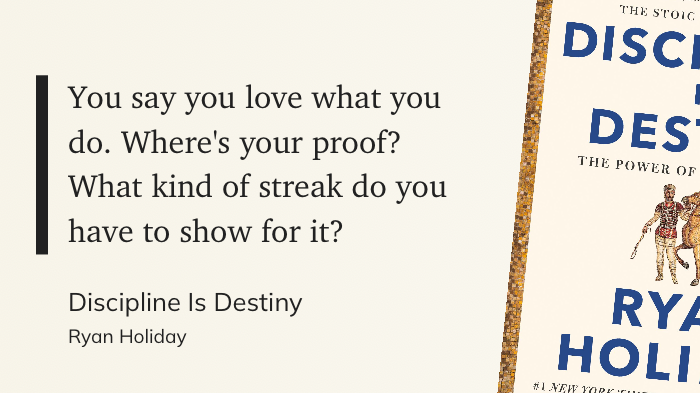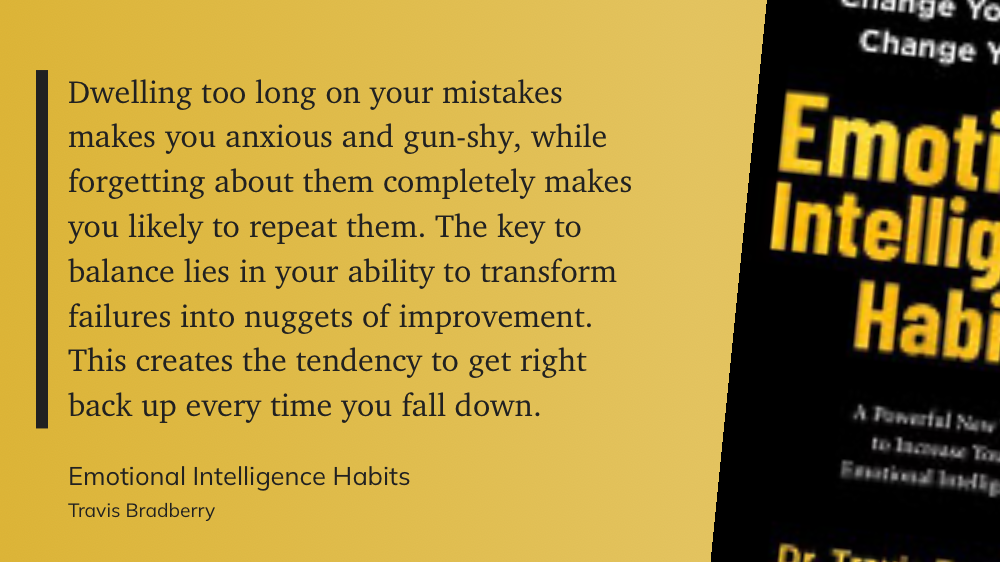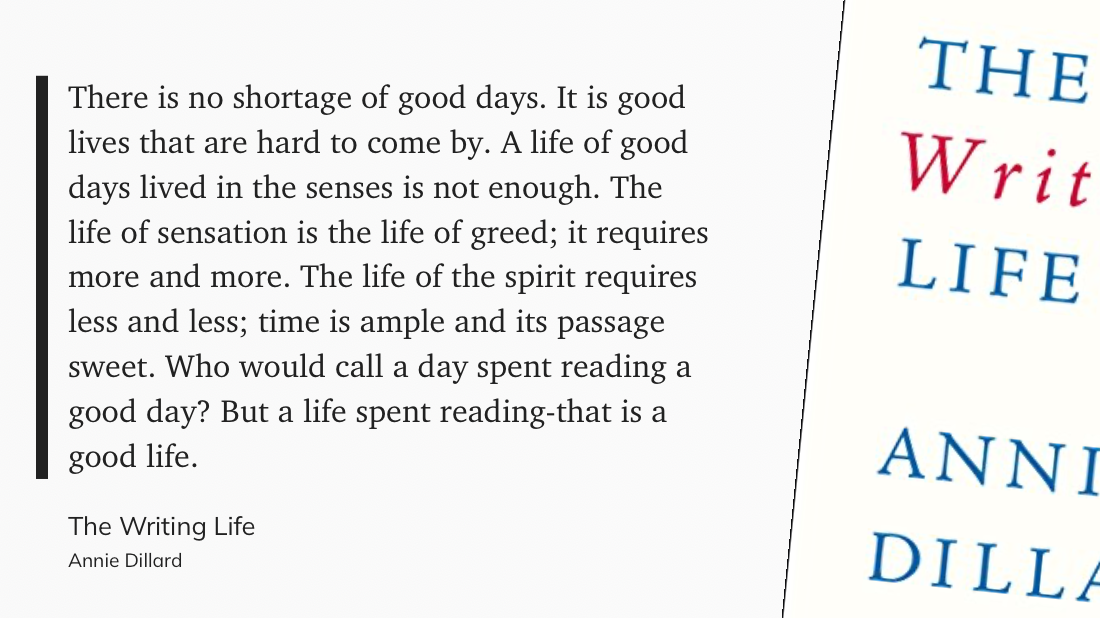My Reading & Thoughts
A Few Good Zingers
A good insult is rare. My favorite all time insult comes from the great Christopher Hitchens. He once said about the late, not great preacher, Jerry Falwell:
“If you gave Falwell an enema he could be buried in a matchbox.”
I came across a rather 19th century zinger that I also thought was clever. This one comes from the profligate and licentious poet Lord Byron about British politician Lord Castlereagh. Pretty good as insults go, no?

Current Book Stack
I finished 5 books this month and am really enjoying the new ones I am reading.
What’s new these days is that I am also reading a few Kindle ebooks on my iPad. My Kindle purchase rule is to buy nothing that costs more than $3.99. That said, I have still managed to acquire 28 at this point. Happy days!
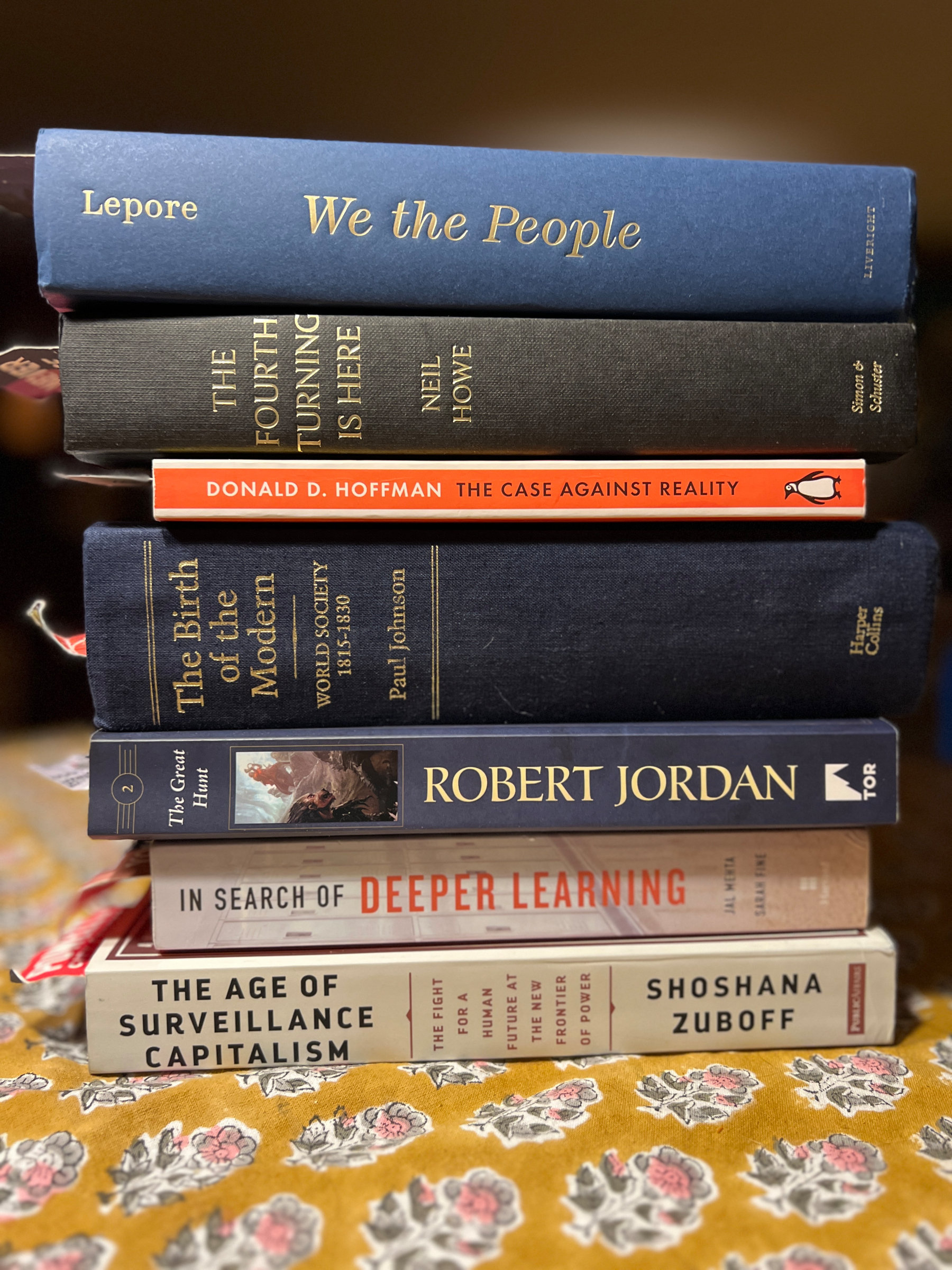
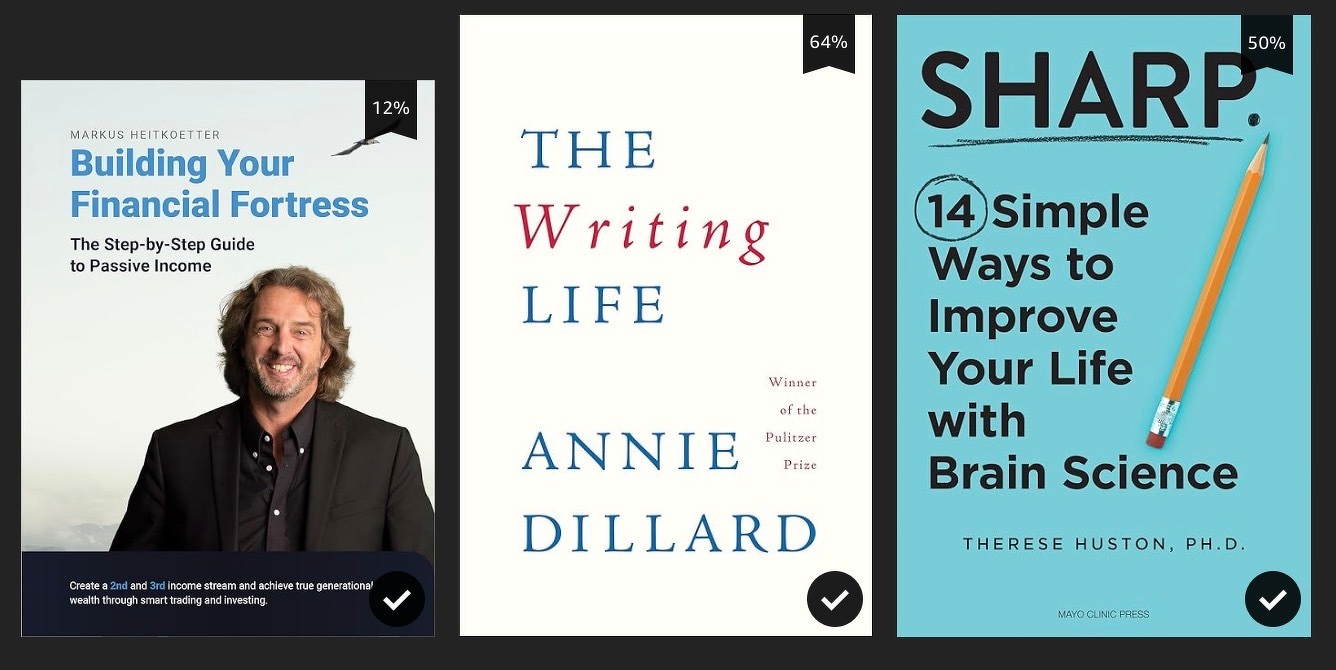
Live Free or Die
While reading Jill Lepore’s new book about the Constitution, We the People, I came across the quote below about when New Hampshire officially declared that slavery was abolished in the state. It surprised me that a New England state waited so long to do that. I also remembered their strident state motto, “Live Free or Die.”
I decided to put down the book and poke around to find out what happened, as New Hampshire’s motto seemed a bit hypocritical in light of the relatively late 1857 abolition of slavery. For starters, I learned that the phrase came from a letter written by a New Hampshire veteran of the Revolutionary War. His name was John Stark and the full line from the private letter was “Live free or die: Death is not the worst of evils.”
The state didn’t actually adopt the motto until 1945, as World War II was ending. The primary meaning behind the phrase as a state motto had to do with political sovereignty and the abhorance of living under governmental tyranny. But what about individual freedom? Why would a state that so boldly proclaims the importance of liberty wait until such a late date to ban slavery?
Apparently, the New Hampshire state constitution, ratified in 1783, stated ‘all men are born equally free and independent,’ which many assumed abolished slavery. However, no law officially banning the practice was every passed. Slavery faded out over time and by 1840, the census indicated that there was only 1 enslaved person in the state.
The reason they eventually made it official in 1857 had to do with the politics of the time. Their 1857 law explicitly stated ‘No person, because of descent, should be disqualified from becoming a citizen of the state.’ It was a direct response to the terrible Dred Scott decision of that same year in which Roger Taney wrote that black Americans were not and could not become American citizens. That makes more sense.
So, my conclusion after digging a bit deeper is that my initial thoughts of hypocrisy by New Hampshire were not totally warranted. Slavery had disappeared in New Hampshire, but the politics of the tumultuous 1850s encouraged New Hampshire to make it official. Sorry I doubted you New Hampshire!
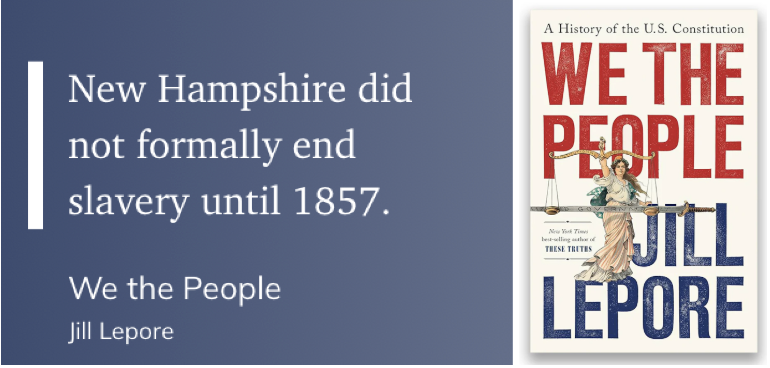

Three Ways I Am Using AI
I have been an avid adopted of AI, but at the elementary level of chatbots and Notebook LM. Claude Code is not something I’ve played around with yet very much. I thought I’d shard a few ways I have been using AI to either improve my teaching or help with an interest of mine.
-
Asking questions while reading: I really enjoy being able to get context, word definitions, and descriptions of people or events while I am in the middle of reading something. This helps me better understand what I am reading, but I’ve found it also allows me to follow tangents that the book I am reading isn’t necessarily going to satisfy. At this point, I have a Project in ChatGPT called ‘My Reading’ where I ask all my questions. The idea is that the AI will start to understand both what I am reading and what I am interested in and eventually make it’s responses more personal. That said, of late I have been using Gemini and Claude much more than ChatGPT, and I haven’t yet made the equivalent Gems or Projects in those apps.
-
Creating tailored short readings for my classes: I organize my teaching around a specfic framework that includes what called an ‘IN." This is the part of the lesson where I am introducing the topic to the students. Sometimes my INs textual context descriptions. AI is great for producing these because I have gotten good at proving precise prompts that explicitly describe grade level, topic, length, as well as weather or not I want certain key words bolded and then defined. I can also pinpoint the context since I already know where I am going with the lesson. See example below.
-
Diet and excercise evaluation: I have gotten into the habit over the past few years of keeping a Google Doc where I record a few details about my day, including my Oura ring score, when I start and stop my food consumption every day, what food and drink I consume, as well as my steps, mediation details, and exercise details. I have created a custom Gemini Gem that I have called my ‘Health Advisor.’ It knows my health goals and every morning I give my daily log and have it give me a score, along with notes and recommendations for the new day. I love it. Not only does is nudge me to make better choices, but I love that I get a daily score based on a specif rubric that I created (and can tweak anytime I like).
I have other use cases to share, but these are the most important for me at the moment.
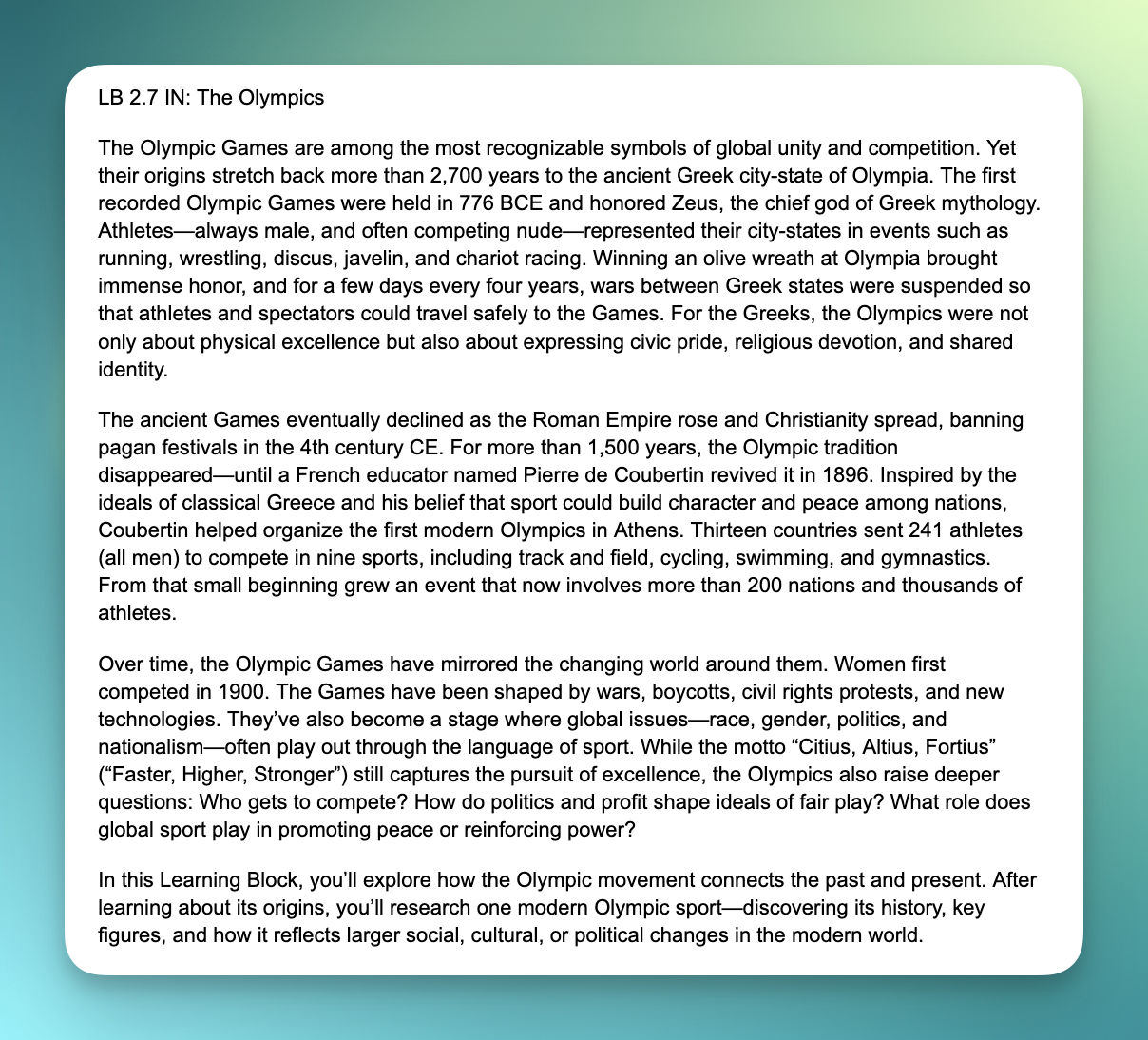
The Bloodiest Day in English History
I came across a reference to the Battle of Towton while reading Neil Howe’s fascinating The Fourth Turning is Here — a book I’ve been pretty absorbed in the past few days, as I mentioned in a recent post. Howe’s central argument is that history moves in cycles, and that every eighty years or so, societies go through a violent, transformative upheaval. Towton shows up in the narrative as a decisive event in the War of the Roses.
Towton was fought on Palm Sunday, March 29, 1461, in the middle of the war, which was England’s brutal dynastic civil war between the Houses of York and Lancaster. The Yorkist forces of the newly proclaimed Edward IV clashed with a massive Lancastrian army in what became, by most accounts, the deadliest battle ever fought on British soil. Estimates of the dead range widely, but tens of thousands of men were likely killed in a single day of savage fighting. When the Lancastrian line finally broke, the retreat turned into a massacre, with fleeing soldiers cut down across the fields and meadows of Yorkshire.
The mentioning of Yorkshire jumped out at me because I spent my junior year abroad at Sheffield University, which sits maybe 35 miles south of where all this took place. I remember the landscape outside of Sheffield fairly well. What comes to mind are the rolling green hills shrouded in fog, the old stone walls, and the way the countryside feels ancient. To think that one of the most violent days in human history happened just up the road is a bit mind-bending.
Howe’s book has me looking at history differently. As I touched on in an earlier post; less as a straight line and more as a recurring pattern of crisis, renewal, and crisis again. The Battle of Towton is a reminder that those cycles can be extraordinarily brutal. England in 1461 wasn’t so different from other moments in history when political order collapses and people settle their differences in the worst possible way.
Worth remembering, in whatever turning we happen to be in right now.
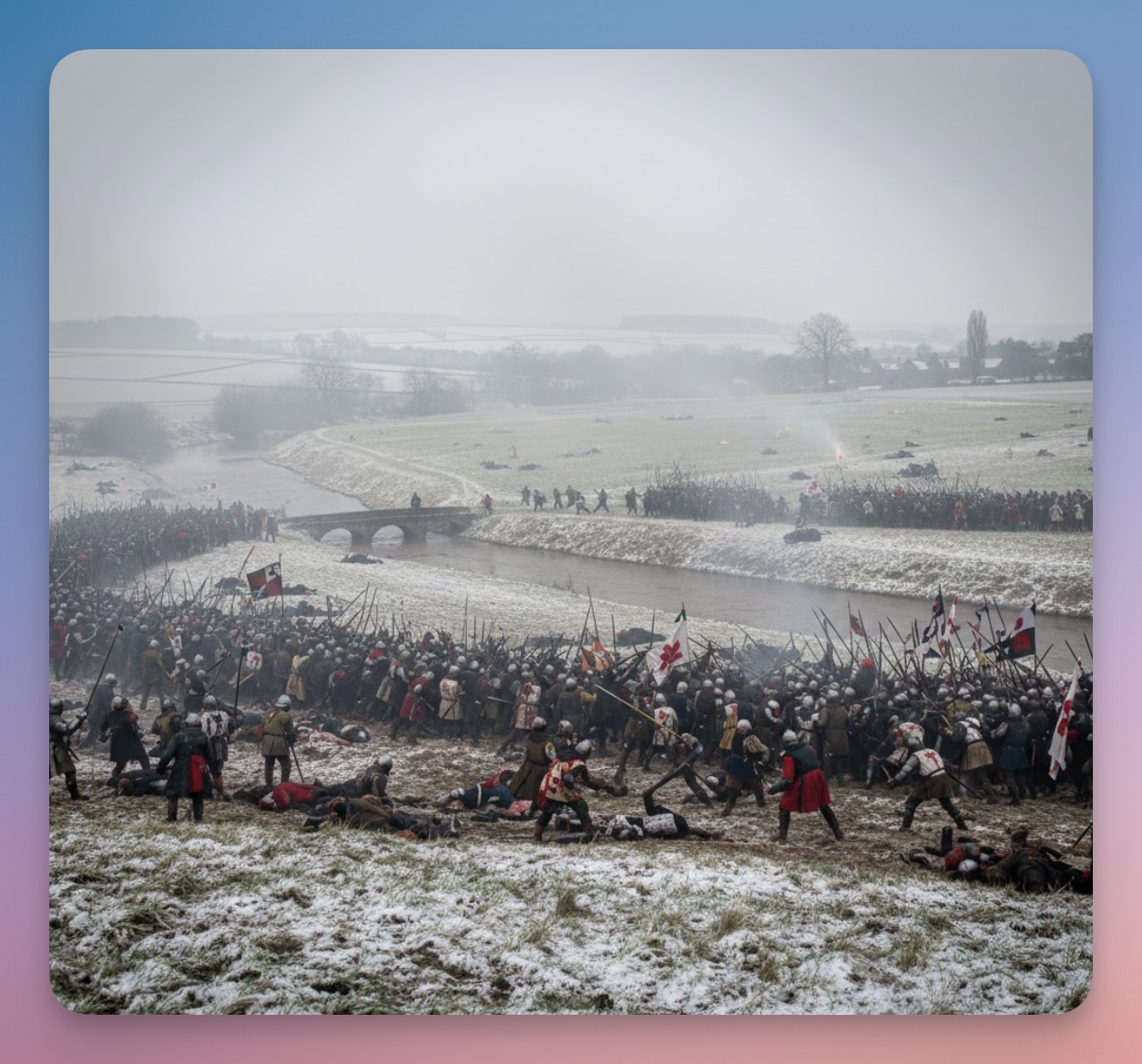
Guess Who Pays for Tariffs?
Trump’s tariff policies are obviously controversial. It is true that they are bringing in some new governmet revenue. According to CNBC (and others), tariff revenue in 2025 was $124 billion, a 304% increase over the previous year. However, the New York Times reported today on a study just released by the Federal Reserve Bank of New York that illuminates who exactly is paying these taxes.
Zooming out a bit, the findings from the New York Fed highlight a central debate in trade policy: the trade-off between using tariffs as a tool for industrial strategy (the old Hamiltonian approach) and the resulting inflationary pressure on the domestic economy. While tariffs are often intended to protect local industries or exert geopolitical leverage, this new study underscores the “pass-through” effect, where import taxes act as a de facto consumption tax on Americans. As policymakers weigh the benefits of “de-risking” supply chains and reducing dependence on specific trading partners, they must confront the reality that these structural shifts often come at a direct cost to the purchasing power of domestic businesses and households.
More specifically, the New York Fed study reveals that the vast majority of the economic burden from the 2025 U.S. tariffs (nearly 90 percent!) is being borne by domestic firms and consumers rather than foreign exporters. Apparently, while the average tariff rate spiked from 2.6% to 13% over the year, foreign exporters generally did not lower their prices to absorb the cost. Instead, these costs were passed through to U.S. importers, leading to an 11% increase in prices for goods subject to the average tariff.
So the federal government is raising more revenue, but they are raising it from us.
Note: The graph below is taken from the NY Fed study by Mary Amiti, Chris Flanagan, Sebastian Heise, and David E. Weinstein
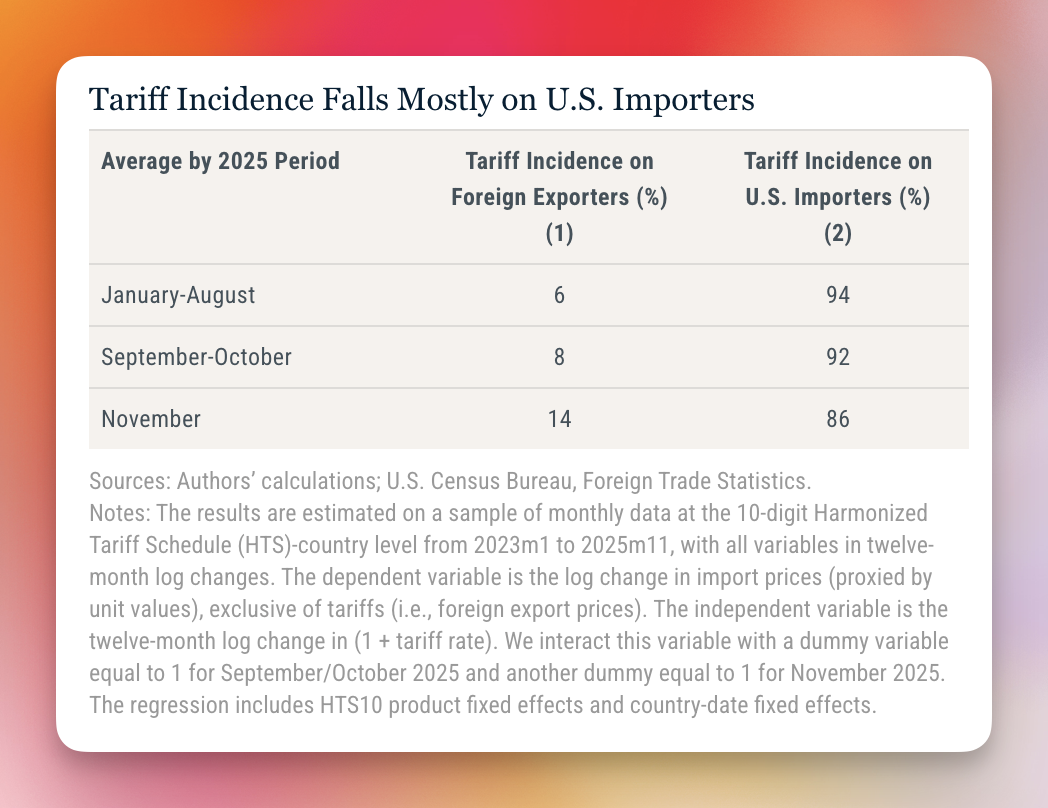
Music as Torture
I finished Steve Coll’s The Achillies Trap last month. Good book. Readwise reminded me last week that I had saved the quote below about the use of music by the C.I.A. prior to the 2003 invasion to signal to Iraqi generals that the United States was ‘around.’ It reminded me of the story of how the C.I.A. used music both to help capture Panamanian dictator Manuel Noriega (Bush the Elder) and to torture prisoners at Guantanamo Bay during the administration of Bush the Younger. Metallica’s Enter Sandman was apparently a favorite. According to Sgt. Mark Hadsell of the 361st Psychological Operations Company, “If you play it for 24 hours, your brain and body functions start to slide… that’s when we come in and talk to them.” This practice, of using western music as torture, eventually led to a Freedom of Information Act request by many artists who wanted to know if their music was used and why it was chosen. Interesting list of artists.
This illustrates an important philosophical and spiritual point, which is that music (and everything else for that matter) is not inherently pleasurable or horrible. It depends on the mind that perceives it and in this case, how often one hears it! You know, the first bowl of ice cream is usually pretty yummy, but being forced to eat 20 of them would make you sick.
In the end, I find that It is a sobering reminder that the same melodies that offer us liberation or comfort can, in a different context, be weaponized to break the human spirit.
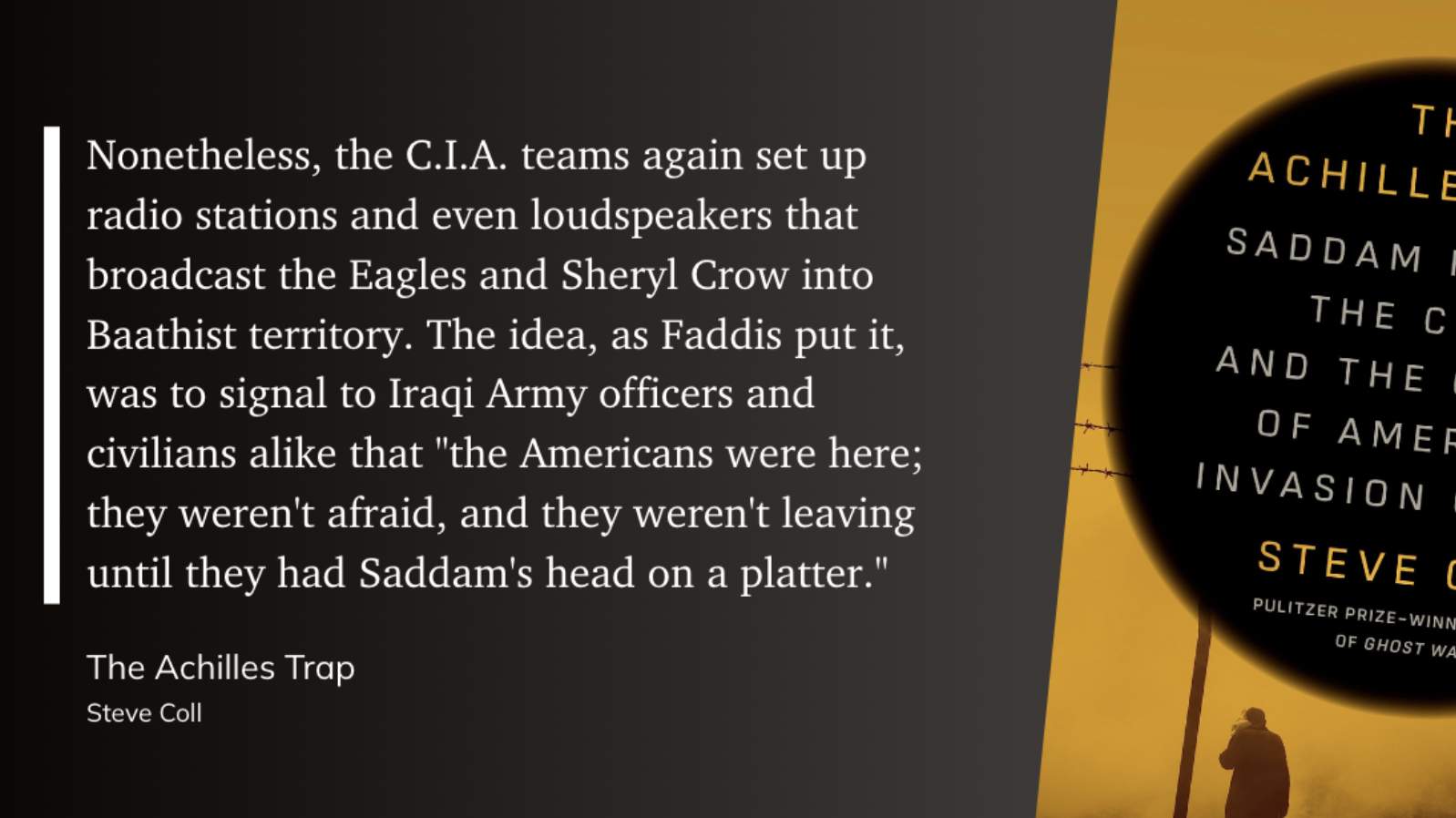
Brian Johnson's Philosopher's Notes Got an Upgrade
I am a longtime admirer of Brian Johnson. I first came across his Philosopher’s Notes, which were multipage summaries of great books. I like them because they were not too short, but also not too long and easily digestible. He eventually started a business called Heroic which aims to have at least 51% of the world flourishing by 2051. The dude is smart, compassionate, and driven to improve both himself and the world. Indeed, I’ve recommended his products before on my blog.
The reason I am revisiting his work is because Heroic just re-did their Philosopher’s Notes web experience and it is very cool if you are are type of person who is interested in great ideas. The site has 718 sets of book notes as of today (they generally add them consistently). The site also has 61 videos of Brian breaking down books.
A new feature that I think is cool is their Quests (see pic below). The Mental Toughness Quest has 9 books selected to work through. When you click on a note, you can access a pdf (which is downloadable) or an audio file, if you’d prefer listen.
The site also has an ‘AI Brian’ tool, where the user can query Brian about anything. I asked what it was trained on and it said: Here’s the rundown:
-
Heroic +1s: Daily audio nuggets (like 1,700+ episodes) on everything from journaling to epic challenges—bite-sized wisdom to level up moment to moment.
-
Areté and Optimize: Deep dives into Brian’s experiments in living at your highest potential, with journaling prompts, challenges, and frameworks like Basic Training.
-
Podcasts and talks: Heroic Wisdom Daily, live workshops, keynotes—hours of riffing on purpose, habits, relationships, energy, and creating a flourishing world.
-
Books and courses: Stuff like A Philosopher’s Notes (distilling 1,000+ ideas into 10 principles), Optimal Living 101 classes, and the Coach program.
I am a lifetime member of Heroic, so I’m not sure what it costs now to access this amazing resource. However, it is high quality and especially if you want to learn without spending all the time reading the entire books, Heroic’s Philosopher’s Notes website is worth exploring.
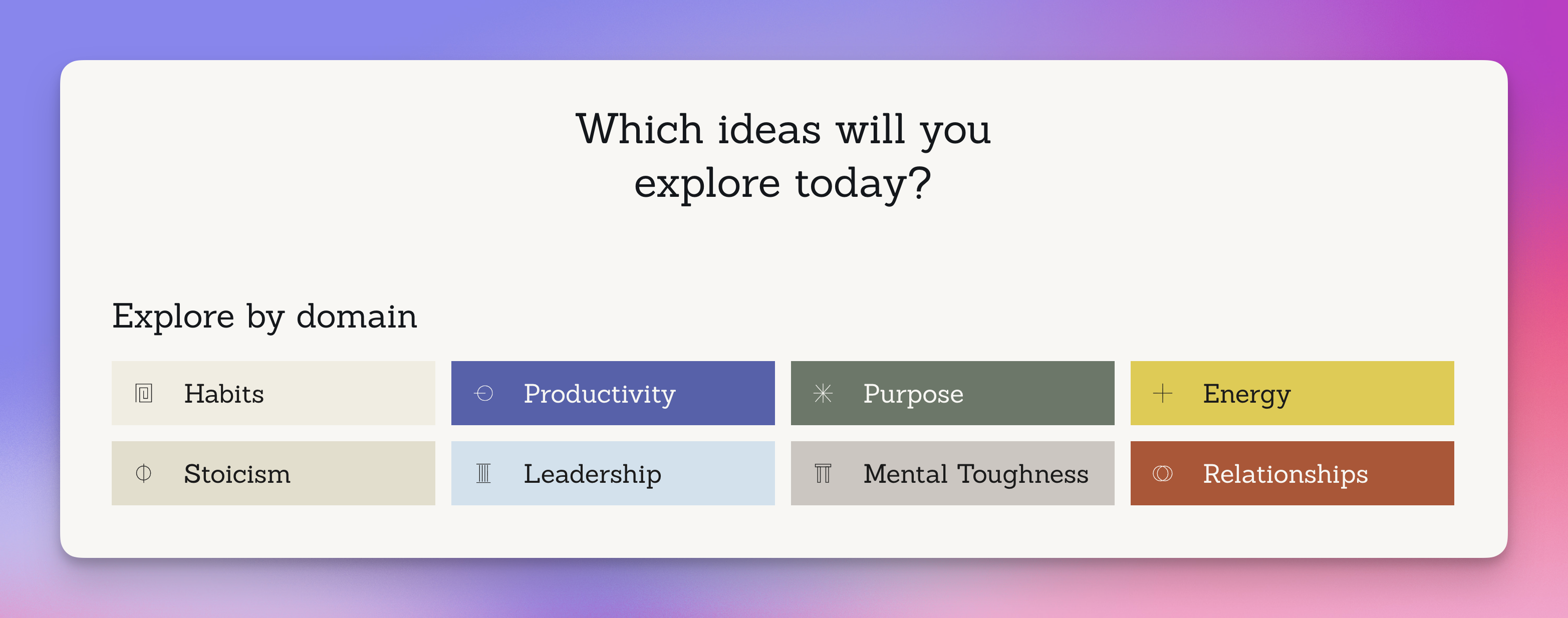
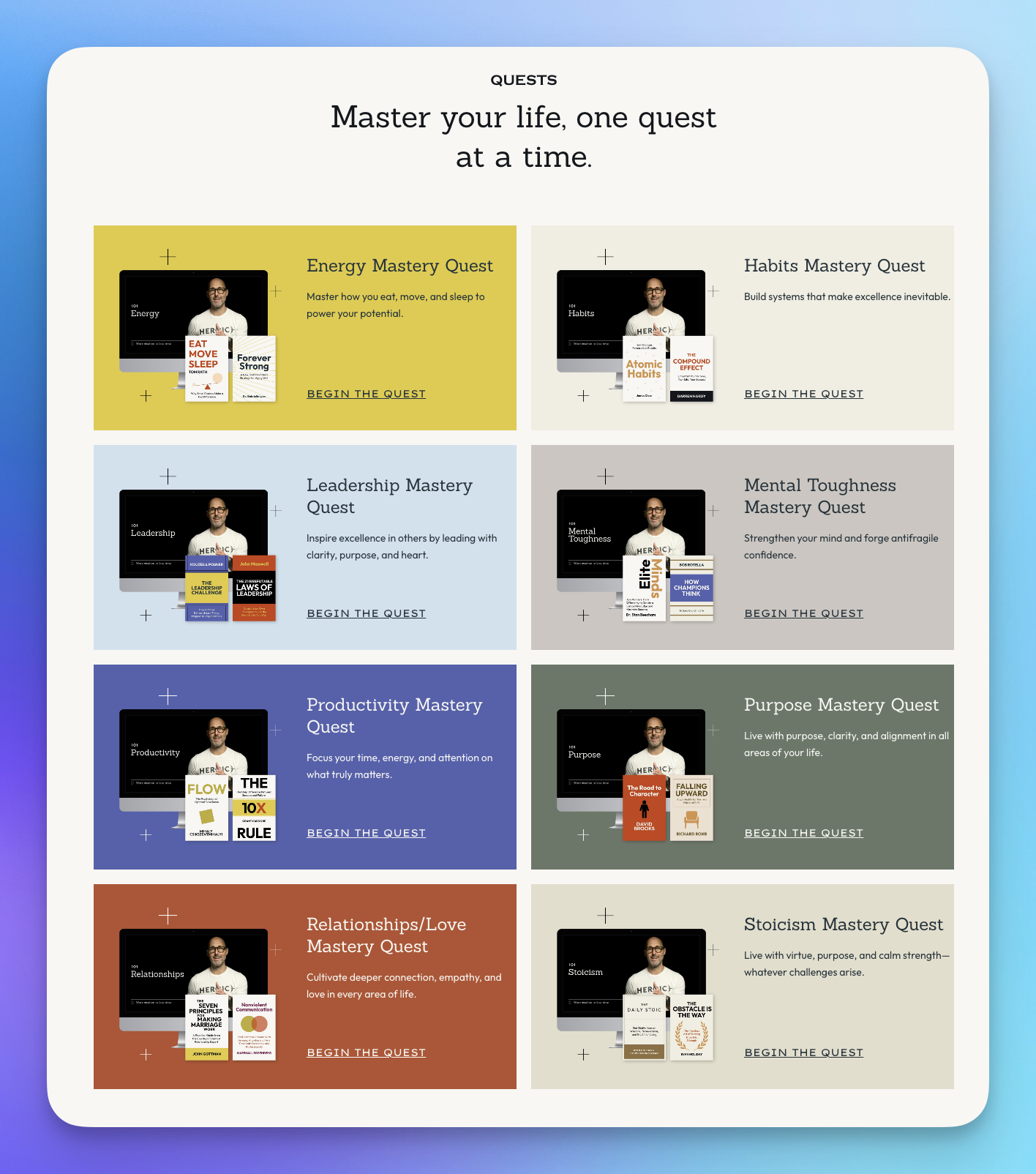
4 Articles and a Song
I came across these 4 article and 1 song in my recent internet wanderings and wanted to share.
-
This article is about how the exposure to fire influenced human evolution.
-
Found this by browsing the always interesting blog of Tyler Cowen, Marginal Revolution. AI renting humans??
-
Cato Institute study on immigrants. Turns out, immigration is good for America. Who knew? See summary of study below.
-
Ever wanted to know the history of the United States and Greenland? Here ya go.
-
Lettuce playing Breathe. Nice Estimated tease in there!
xoxoxoxoxoxoxoxoxoxoxoxoxoxoxoxoxoxoxoxoxoxoxox
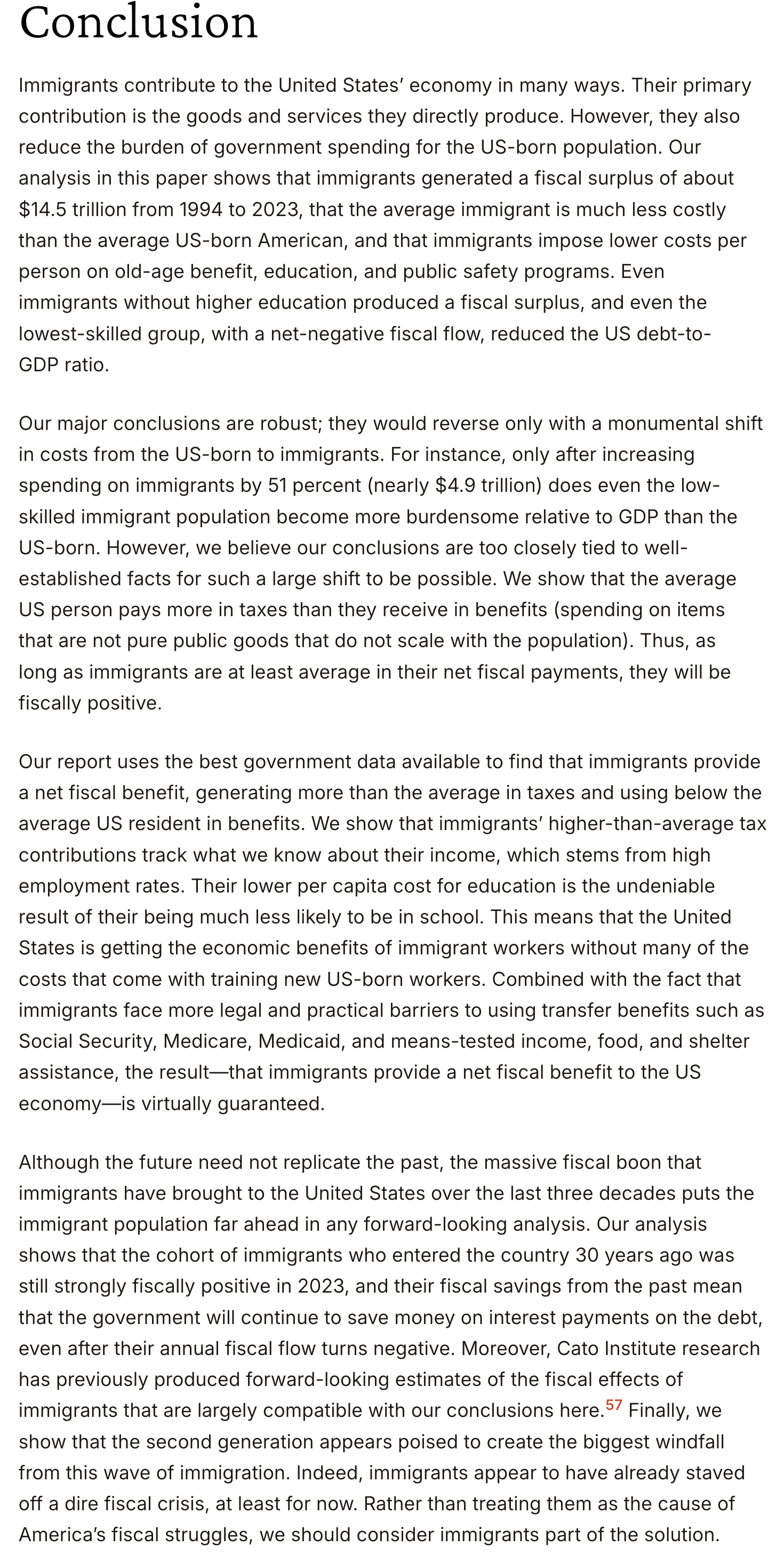
Current Reading Stack
I am currently ‘reading’ 9 books. I put that in quotes, because I really have almost given up on the two bottom books in the stack, both of which I started last summer. February will be my last go with them and if I don’t make any progress, I’ll abandon them; which I don’t like to do, but you know, life is short. I’m exactly 60% of the way done with the Paul Johnson tome. I seem to average about a 100 pages a month on it so I should be done by late May. The Great Hunt is getting a bit more interesting, but I will not continue with The Wheel of Time series. It is just average and comes nowhere near LOTRs. The top five books in the stack, the ones I started most recently, are all enjoyable. I imagine the Kelton book will be finished next.
Today at Powell’s I picked up a novel I’ve heard a lot of good things about called Stoner by British writer John Williams. It came out in the 1960s, but apparently went a bit viral in the oughts. It currently has more than a quarter million ratings on Goodreads. Glad to add it to my TBR pile.
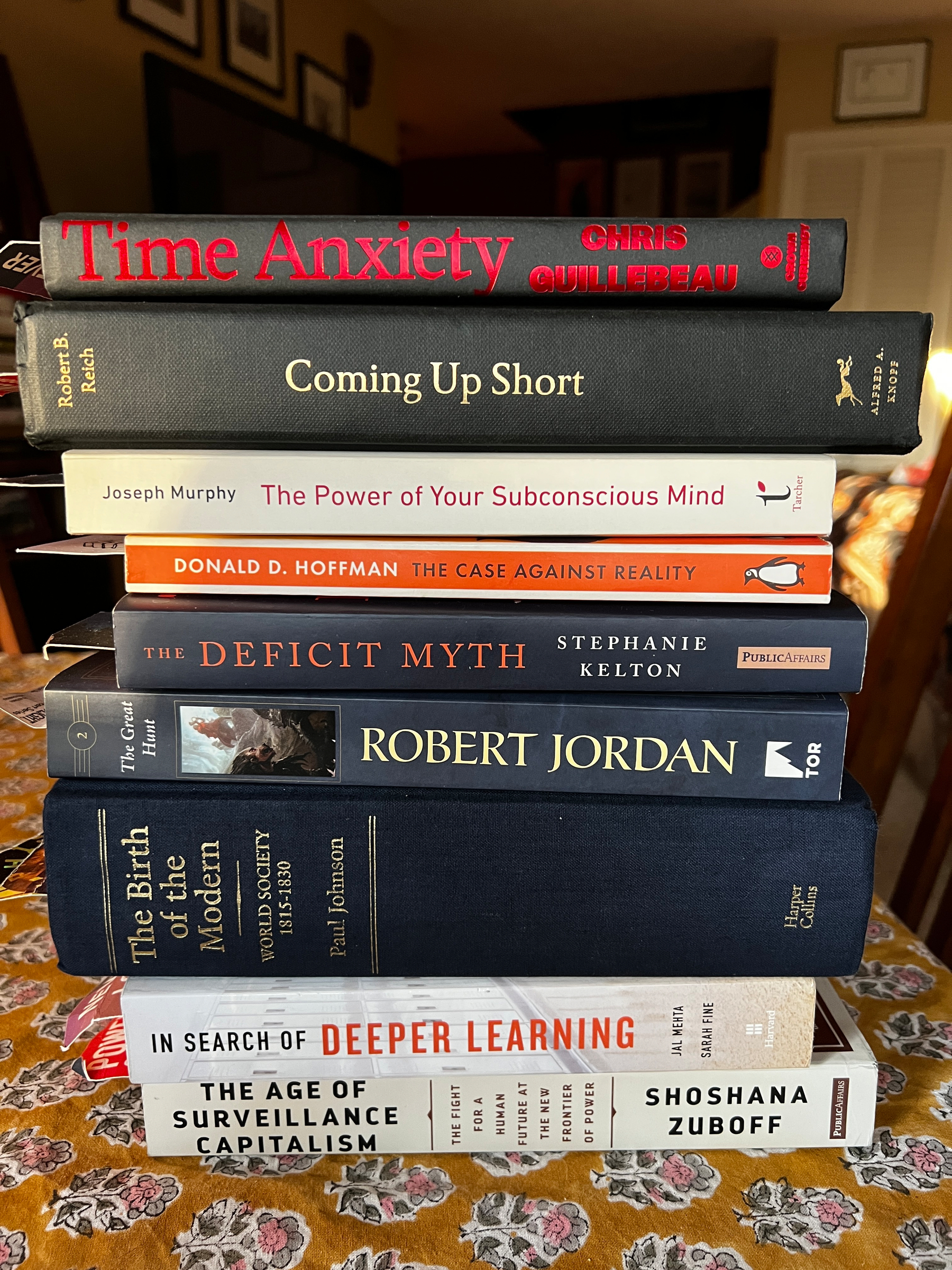
Our Shrinking Brains
I got a very interesting book for Christmas called The Case Agaist Reality. It is a short, dense work of philosophy that I am slowly working my way through. Something I just came across in the book has to do with the shrinking of the human brain over the past 20,000 years. Indeed, some apparently argue this shrinking began as much as 100,00 years ago. This was news to me.
Apparently, according to some thinkers, as societies arose and became more complex, our ancestors increasingly didn’t need to ‘know everything’ to survive. They could become specialists. This is an obvious idea to me from a cultural and economic standpoint, but I didn’t realize it has had an impact on our brain size and the ratio of brain size to body mass.
The idea is that Individuals who may not have survived alone or in small groups, could survive in larger, more complex communities. Indeed, culture acts as a sort of buffer, or safety net. Tools, stored food, medical expertise, shared memories (and eventually writing); these all help carry the cognitive burden for people allowing for leaner biological cognition without losing ‘intelligence.’ At the same time, selection pressures decreased, as one could get away with not being an outstanding generalist. At the end of the day, it appears complex societies didn’t make humans dumber; they changed which kinds of minds could survive.
These ideas are still controversial and there doesn’t seem to be consensus. The fact that our brains have been shrinking however doesn’t seem to be in doubt.

Thinking about Robert Reich and William T. Sherman
One of the books I am currently enjoying is economist Robert Reich’s memoir Coming Up Short. The book is not a straight memoir, as Reich works in polemics about American politics and our economy while telling his life story in roughly chronological order. I tend to agree with his views, so I am not put off by the political digressions. Reich was born to a working class Jewish family and eventually earned a law degree from Yale, where he knew and went to school with Hillary Rodham, Bill Clinton, and Clarence Thomas. He worked for the Carter administration in the 1970s and eventually served as President Clinton’s secretary of labor. He eventually became a professor (at Harvard and Berkeley) and is now a pretty outspoken policy wonk advocating for a variety of progressive issues.
I have also been thinking about Union General William Tecumseh Sherman because I recently taught a lesson about his ‘March to the Sea’ during the Civil War. The essential question of the lesson was whether or not it is justifiable to make war on civilians and infrastructure, which Sherman did to great effect. As I write this, I realize that I am overdue in reading one of the biographies about Sherman, because it is clear to me that he is a fascinating character. A fact that I love about him is the willingness he had to do what it took to defeat the traitors during the American Civil War. That said, he was generally conservative, a racist, and was motivated more by keeping the Union together than abolition.
What might these two very different people have in common? The connection that comes to mind has to do with systems. Sherman had his soldiers attack the railroads (leading to ‘Sherman’s Neckties’) and farms (leading to ‘Sherman’s Sentinels’) as they marched through the South. He also didn’t feed his soldiers and instead had them ‘forage,’ which led them to steal from the people of Georgia as they made their way to the coast from Atlanta (which was left in flames). By doing this, Sherman attacked the system that sustained the Confederacy.
I see Reich as someone who thinks a lot about the reality of the economic system we live in. Rather than wallowing in theory, in his book Reich often explains the mechanisms and decisions that many people in power make that impact our society, for better and for worse.
I’m left wondering, what can one do to improve the corrupt and immoral systems we are a part of? Simple, every day choices made by enough people hopefully preclude the need for the type of choices Sherman had to make.

Taking the Plunge with Some Kindle Books
I have never been a fan of ebooks. I read a ton, and I have given them a go, but there is something about holding a physical book that is deeply satisfying for me. Another issue I’ve always worried about with regards to ebooks is the blue light. I read in the evenings and I don’t want to have unnecessary exposure to blue lights that might negatively impact my sleep. Another factor that impacted my view was that I couldn’t physically assess, while reading, how far I’d come in a book and how far I had left. An ebook feels the same whether you are on page 1 or page 700.
That said, I don’t have a ton of space for more books. I am also the owner now of some decent blue light blocking glasses that I can wear in the evenings. Finally, I have become more and more comfortable with my iPad. While shopping for something totally unrelated on Amazon todayI decided to browse the book section and I came across a collection of ebooks that for today only cost either $1.99 or $2.99. One of the books was a 365 day ‘daily reader’ style book, which I was in the market for since we just started a new year and I hadn’t found a new one yet I wanted to read.
All this is to say that I spent about $11 on 7 ebooks that I can now enjoy on my iPad. I’ve already started the daily reader. Not sure when I’ll dive into one of the others, but for $2, I couldn’t resist. Indeed, when I think about how much time I’ll enjoy reading these books in light of their cost, especially when I consider what a 2 hour movie costs these days, I feel like I got a good deal. Later in the year I suspect I’ll repost something about whether the money was well spent or not.

Three Cheers for Brandon Stanton's Work
I am a serious fan of Brandon Stanton’s photo books. His first book, Humans of New York, blew up when it was first published. I loved the concept and thought the photos and quotes from the people he photographed were fascinating. I liked his book Humans even more. I am now almost through his latest coffee table book, Dear New York,.
The concept is simple. Each page has a photo and is accompanied by a quote from the person in the picture. I love the books because the people are so unique and often the things they say are entertaining, weird, insightful, revelatory, inspirational, or all of the above wrapped into one monologue. They also provide a similar benefit to traveling, which is to expose oneself to people that are utterly different than oneself.
I can’t recommend these books enough.
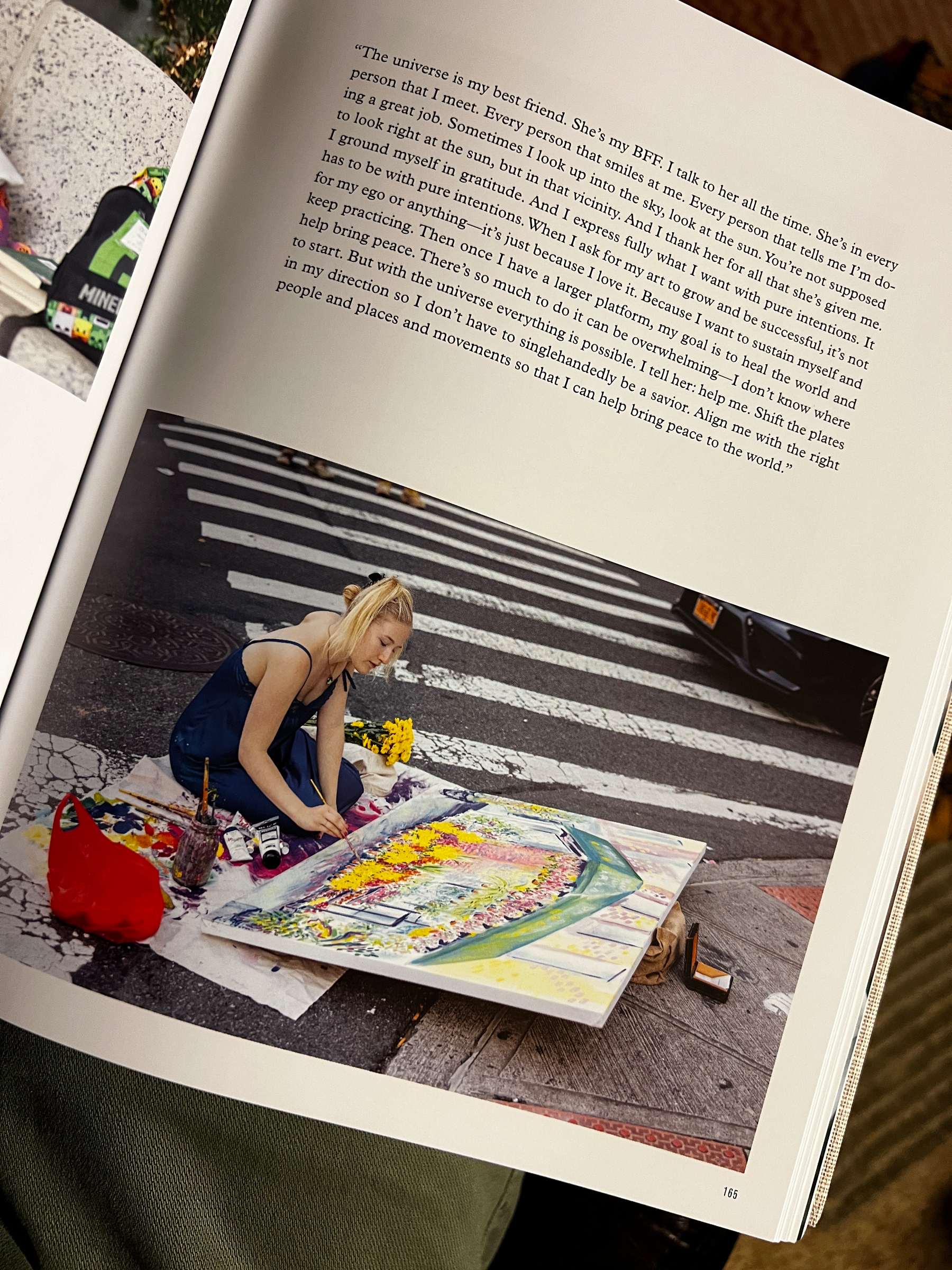
New Year, New Books to Read
I recently visited three bookstores in New York City and three in New Haven, Connecticut. I had received some gift cards to book stores but I didn’t want to buy books back east and have to deal with traveling back home with them. Instead, I was happily conducting research. I took note of what interested me and then went shopping when I got back home.
The photo below is what I came home with, except for the John le Carré novel, which was a gift I received in New Haven. Pretty good mix; a little poetry, a little philosophy, some memoir, some history. I even managed to get one novel. The surprise of the litter was The Coming of Neo Feudalism. I am also excited to read Brandon Stratton’s Dear New York, since I am a huge fans of his other photography/interview books.
I hope you got something new to read, as well.
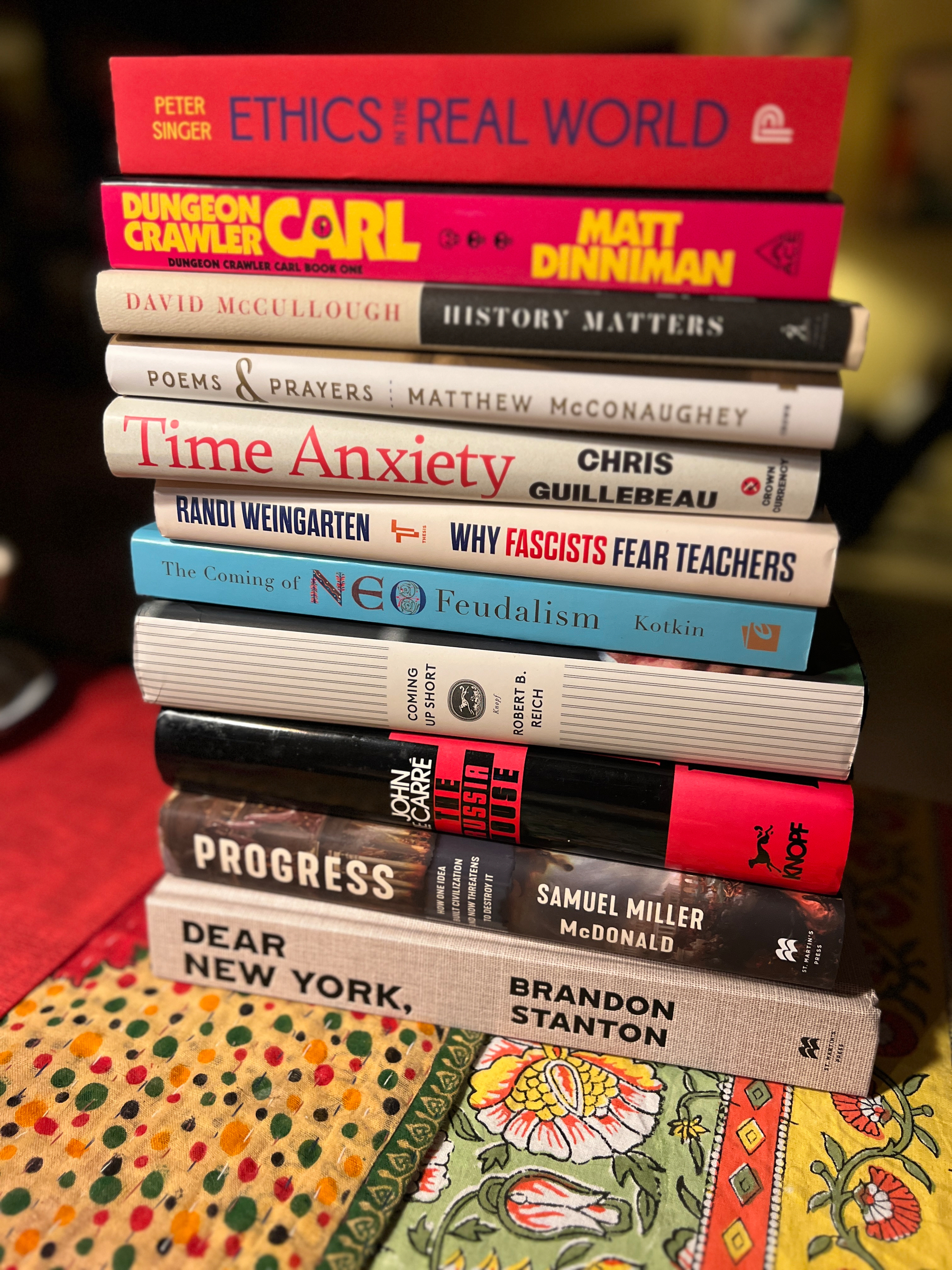
A Warning System at End of the Year
Ideopunk is right. We need to learn how to course correct on our own. I suppose, our spouses and close friends can provide warning signals. but then again, sometimes confronting someone about the need to rethink something can feel icky.
So how can we create or our own warning signals?
For me, one way is to use events like the start of a new year to reflect. Sure, the timing is arbritary, but it works. For one, the new year always comes in the middle of stretch of time off from work. The winter solstice has also recently occurred, giving me the sense of a new beginning.
My reflection consists of two parts. One, I give myself time for a major brain dump of everything that is on my mind. Secondly, I like the Stop/Start/Continue exercise and apply it to my life. This process usually drips out over several days, allowing my ‘system 2’ thinking to go to work. Do I catch all the warning signs in life that I need to catch? I’m not sure I’m batting 100%, but as a personal warning system, period reflecting helps tremendously.
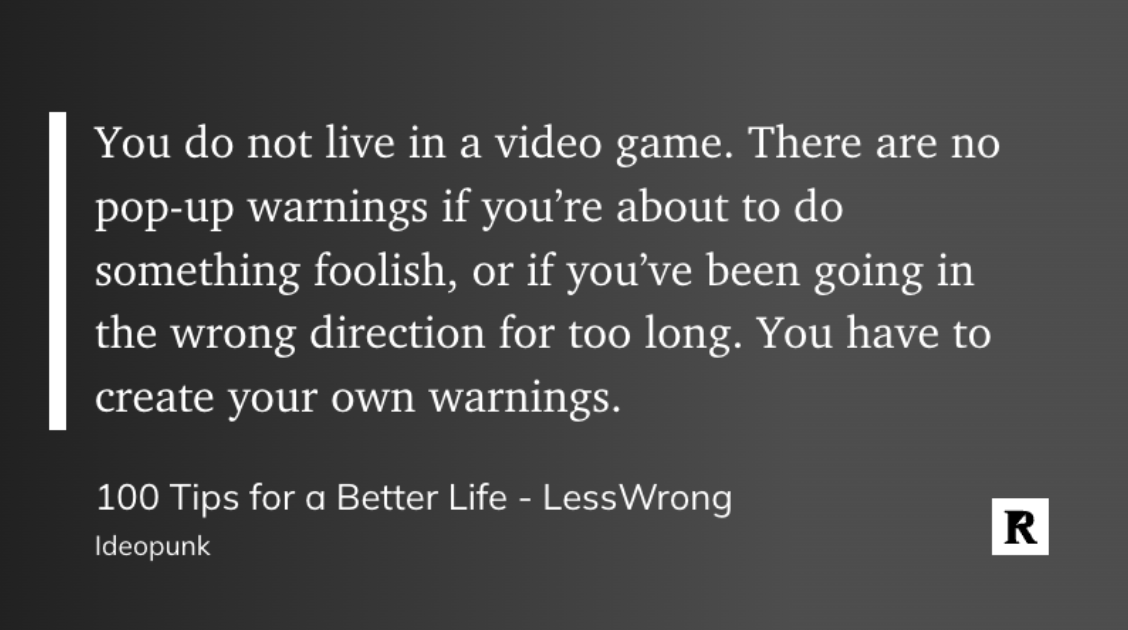

In Praise of Barnes and Noble
When I travel I love visiting the bookstores in town. Since Covid, because they are ubiquitous, I have had the pleasure of checking out many Barnes & Noble stores. In the past, when big chain bookstores ruled before Amazon, I was always more of a fan of Borders than B&N. However, the visits to various B&Ns around the country over the last several years have led me to change my views about the chain.
One of their strategies, I have learned, is to allow the managers at each location to have leeway to stock the stores based on their knowledge of the local community of book buyers. That way, each store ends of being somewhat unique with a different mix of titles. This is noticeable in Portland when visiting the various B&N locations.
Today I visited the one in North Haven, Connecticut and it was awesome. Something I noticed there, which seems to be a common practice now at their stores, is that they have a wide selection of books. They do this by filing many, many of their books sideways instead of face out. In these parts of their shelves they only have one copy of each book, but the selection of new books is impressive. Rather than the top 10 biggest sellers set up 8 deep, it was hundreds of new books per section filed sideways. I was able to spend about 80 minutes just browsing the non-fiction today.
We are visiting NYC soon and instead of Barnes and Noble I am looking forward to visiting The Strand. Will report on that visit soon.
Winter Holiday Book Haul
My family knows I like books so Christmas usually yields some new reads. I got $160 of gift certificates to Barnes and Noble and the three books pictured below. I specifically asked for The Achilles Trap. However, the one I started reading immediately is Donald D. Hoffman’s The Case Against Reality. It looks like it will cover my interest in learning more about science (I don’t know much!) and the nature of reality (and mysticism generally). The epigram, shared below, landed hard becaue it fits by current view. I’m sure I’ll post again about the author’s ideas.
Hope you got something good to read, too!
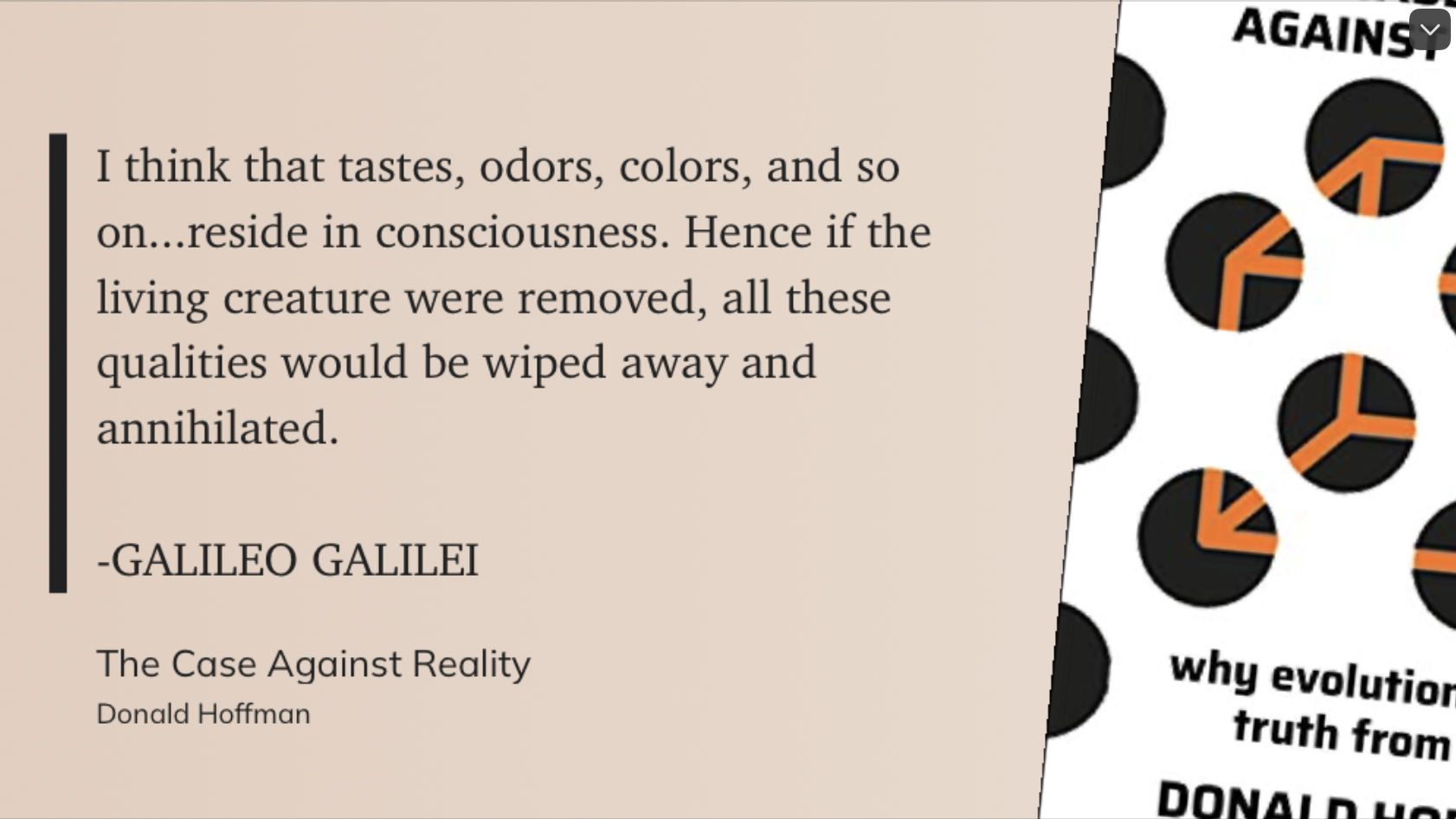
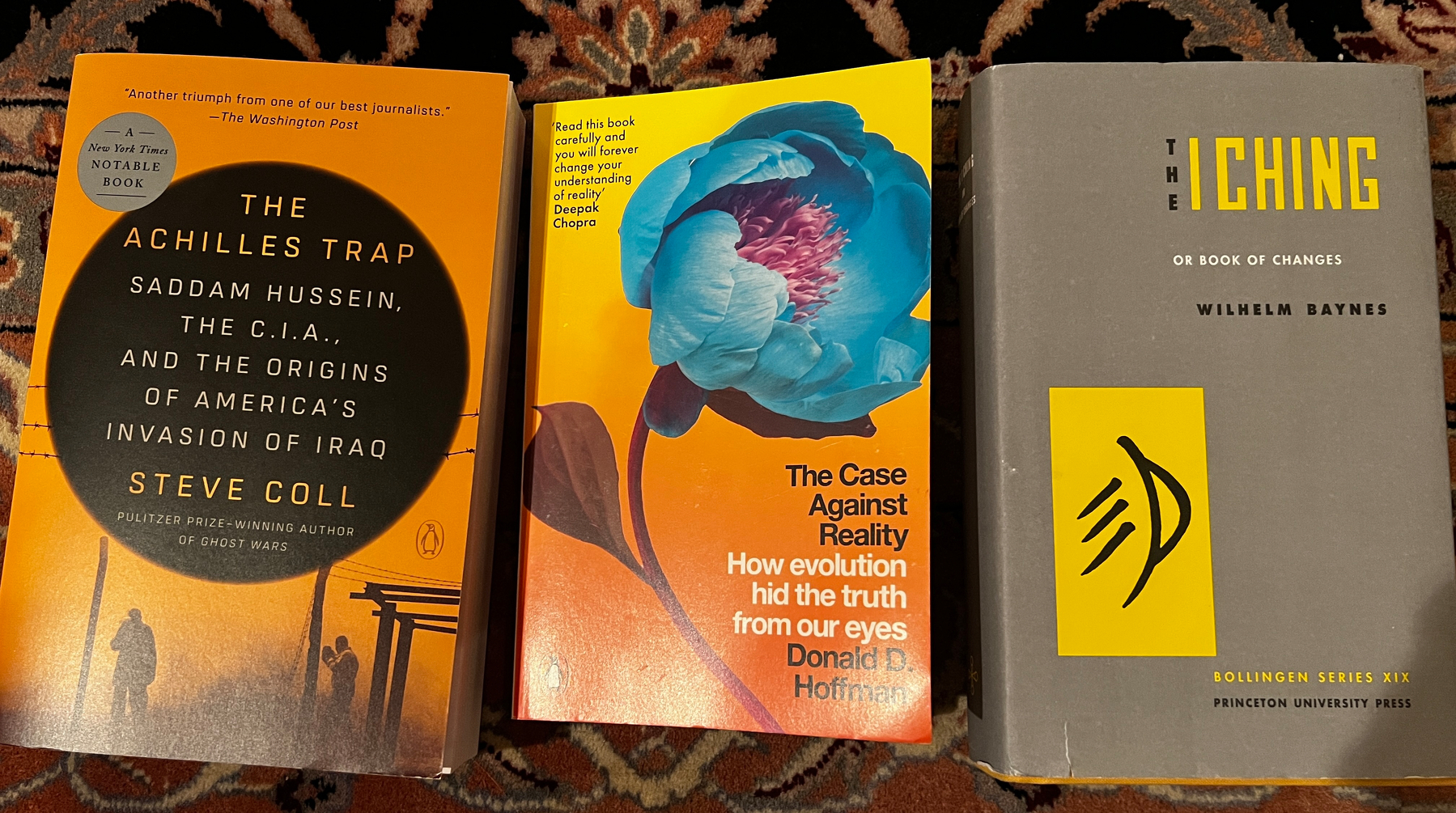
Starting Over Again
I am a believer in habits and streaks. I agree with the Ryan Holiday quote below that they say something important about what we value. However, the fact is that if you try to maintain a lot of habits every day and you keep track of them, you’re bound to break a few. Yesterday, my streak of days with a blog post ended. I was up around 120 days straight, but with travel and visiting family taking priority, my streak went kaput yesterday.
I know some people get easily bent out of shape when an important streak is broken. I get it. The impact reminds me of what some say about tracking things like sleep; that the stress of the numbers ends up making one’s sleep even worse. And again, I can see how that would work for a lot people.
Luckily, that isn’t how my mind works. I strive to continue my streaks, but once they’re over I try to get back on the horse and start a new one without feeling bad about it. Despite my blogging streak ending, I have so far managed to keep two other important streaks alive so far–my daily journal entry and my daily meditation.
So, here I am: On the road, with my days a bit topsy turvy, trying to start a new streak (and keep other ones going). I’ll do my best to beat my last blogging streak but won’t be discouraged if I can’t on this new round. We shall see.
